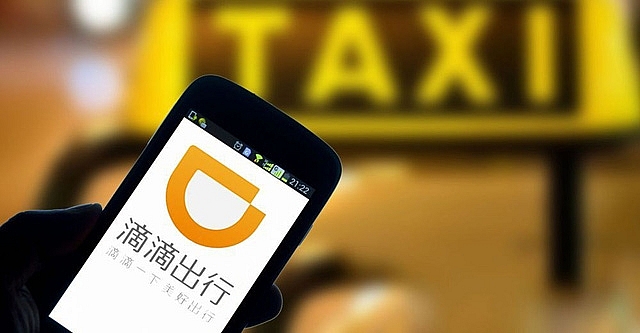Tencent interest to rearrange ride-hailing market?
 |
| Tencent's interest in Didi Chuxing and Go-Jek may belie ambitions to harmonise the market |
China-based ride-hailing player Didi Chuxing is waiting for the Vietnamese government’s approval to start operations in the country, according to newswire Dantri.
Nguyen Xuan Thuy, deputy director of the Transport Department under the Ministry of Transport (MoT), told Dantri that Didi Chuxing submitted the dossiers to MoT, however, the ministry has yet to consider this proposal because it is not a suitable time for Didi Chuxing to enter Vietnam.
At the same time, motorcycle ride-hailing transportation provider Go-Jek from Indonesia has gathered a team of experts to advise its expansion in Vietnam to break the dominance of Grab.
In reality, both Didi Chuxing and Go-Jek have a common backer - Tencent. Notably, Tencent is the strategic investor of Go-Jek, while Didi Chuxing has received substantial financial support from Tencent.
Thus, once Didi Chuxing officially comes into operation in Vietnam, no one can say how the shared investor will affect operations at the two companies—some foresee a level of aberration of free market competition where the two service providers coordinate to minimise friction, similar to how Uber and Grab have decided to separate their spheres of interests around the globe due to their common backer Softbank.
| Uber and Grab share a common investor - SoftBank from Japan. The Japanese firm first backed Grab back in 2014, and it recently pumped $2 billion fresh capital into the company alongside China’s Didi Chuxing. In January, SoftBank made headlines with a significant investment into Uber, only a few short months after which Uber has decided to withdraw from Southeast Asian, passing on its operations to Grab. According to the deal, Grab will integrate Uber’s ridesharing and food delivery business in the region into its existing multi-modal transportation and fintech platform. In the time to come, Grab will take over Uber’s operations and assets in Cambodia, Indonesia, Malaysia, Myanmar, the Philippines, Singapore, Thailand, and Vietnam. As part of the acquisition, Uber will take a 27.5 per cent stake in Grab and Uber CEO Dara Khosrowshahi will join Grab’s board. At the same time, Uber will focus on its businesses in the US, Europe, Latin America, and Australia, while Grab will develop the market in Asia-Southeast Asia. |
SoftBank has also been a big investor in Uber's rivals across Asia, including Southeast Asia's Grab, China's Didi Chuxing, and India's Ola, as it works to achieve founder Masayoshi Son's vision of a future driven by artificial intelligence and interconnected devices.
According to a source close to Singapore-based Grab, the purpose of investing in these ride-hailing service providers is to keep Softbank's right to change the conversation in case the competition among ride-hailing companies escalates and brings down profit margins.
"SoftBank will play a consolidating role. Simultaneously, SoftBank as a board director in both companies (Uber and Grab) would fundamentally change the conversation," said the source that declined to be named due to the sensitivity of the subject.
Tencent, via its investment in Didi Chuxing and Go-Jek, might be striving to fill a similar role in the market and moderate competition across the board.
What the stars mean:
★ Poor ★ ★ Promising ★★★ Good ★★★★ Very good ★★★★★ Exceptional
Themes: Ride-hailing services
Related Contents
Latest News
More News
- VNPAY and NAPAS deepen cooperation on digital payments (February 11, 2026 | 18:21)
- Vietnam financial markets on the rise amid tailwinds (February 11, 2026 | 11:41)
- New tax incentives to benefit startups and SMEs (February 09, 2026 | 17:27)
- VIFC launches aviation finance hub to tap regional market growth (February 06, 2026 | 13:27)
- Vietnam records solid FDI performance in January (February 05, 2026 | 17:11)
- Manufacturing growth remains solid in early 2026 (February 02, 2026 | 15:28)
- EU and Vietnam elevate relations to a comprehensive strategic partnership (January 29, 2026 | 15:22)
- Vietnam to lead trade growth in ASEAN (January 29, 2026 | 15:08)
- Japanese business outlook in Vietnam turns more optimistic (January 28, 2026 | 09:54)
- Foreign leaders extend congratulations to Party General Secretary To Lam (January 25, 2026 | 10:01)

 Tag:
Tag:























 Mobile Version
Mobile Version